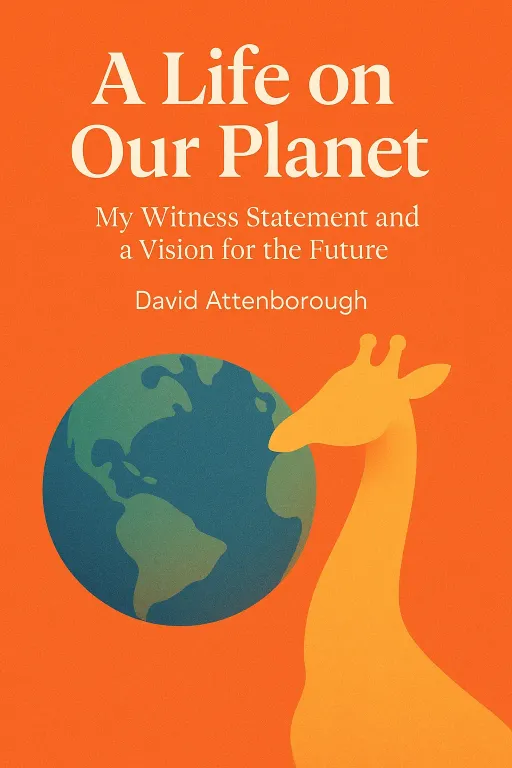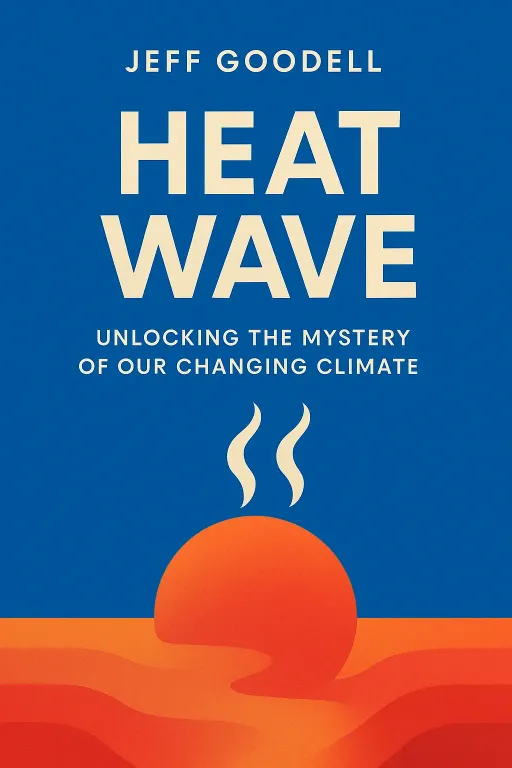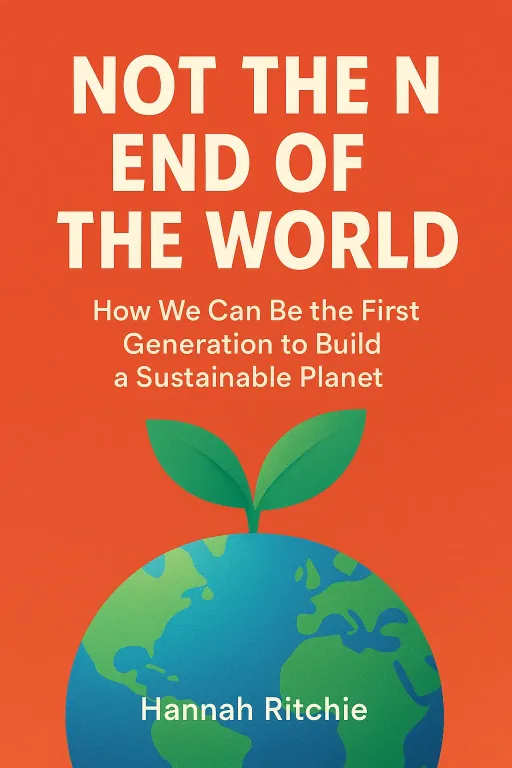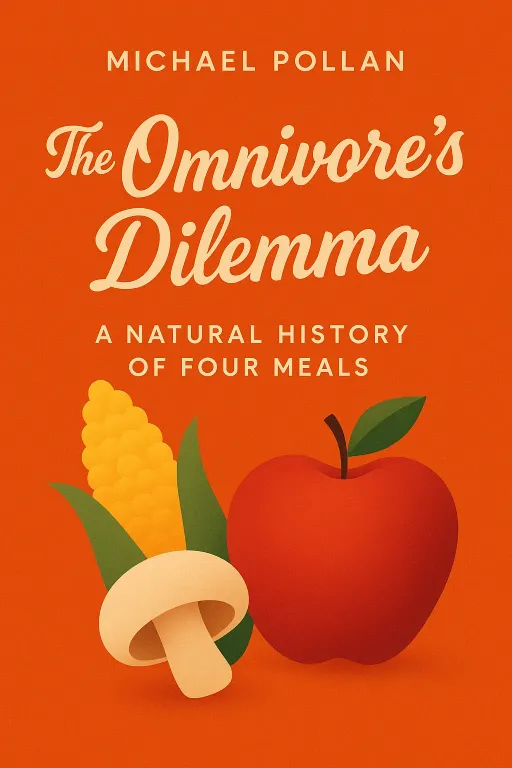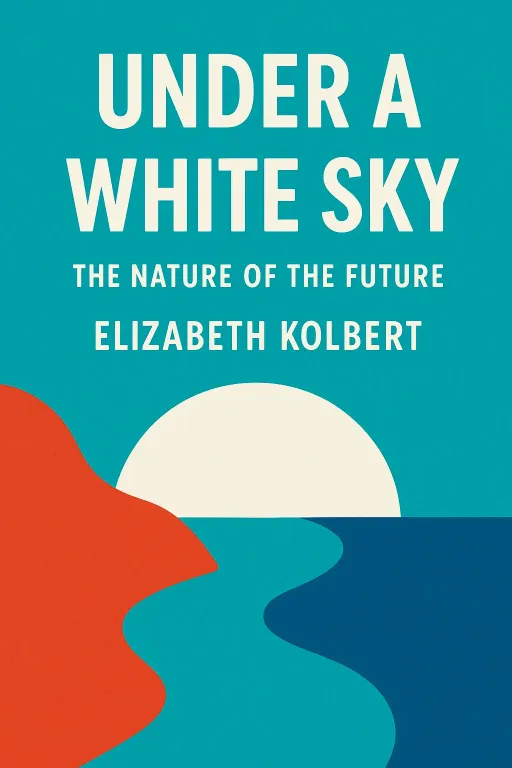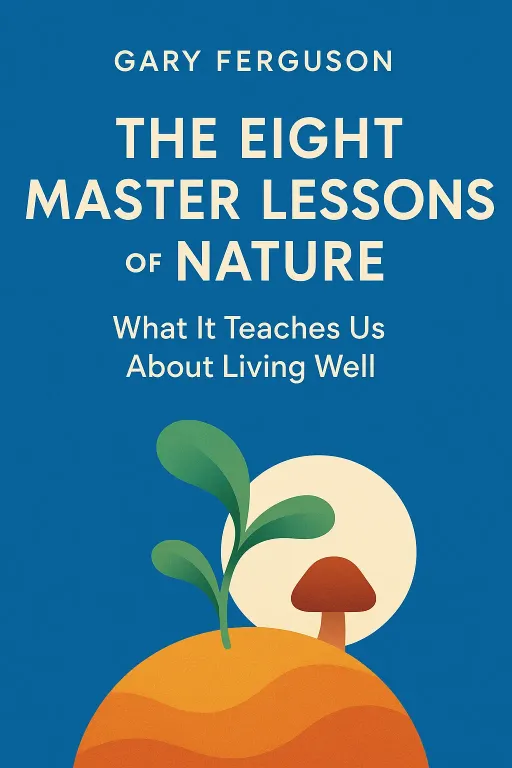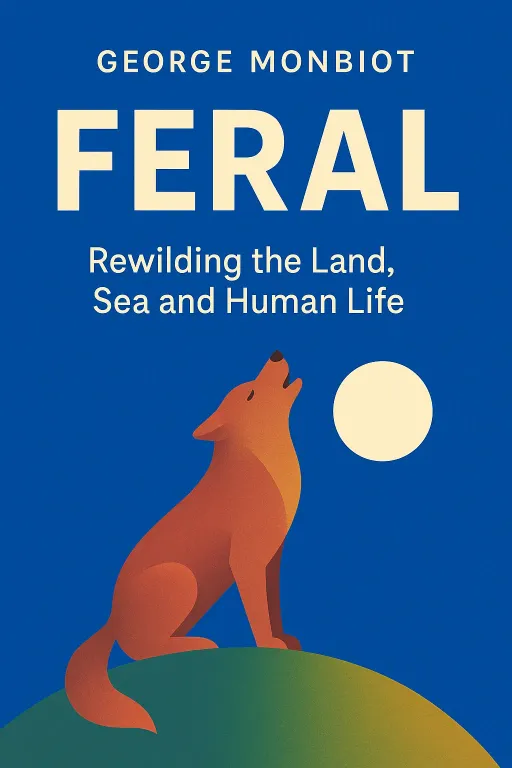
Feral
10 minRewilding the Land, Sea and Human Life
Introduction
Narrator: What if the rolling green hills we celebrate as the heart of our natural heritage are, in fact, ecological deserts? Imagine a landscape so thoroughly managed, so stripped of its wildness, that it has become a green-carpeted wasteland. This is the provocative question at the core of George Monbiot’s book, Feral: Rewilding the Land, Sea and Human Life. Monbiot argues that we are suffering from a profound "ecological boredom," living in a world that has been tamed into submission. He challenges us to see our manicured countryside not as a triumph, but as a tragedy—a "sheepwrecked" landscape devoid of the complexity, surprise, and vitality that defines a truly living ecosystem. Feral is not a lament for a lost past, but a powerful and hopeful vision for how we can let nature back in, restoring not only our lands and seas but our own human spirit in the process.
The Sickness of a Tamed World
Key Insight 1
Narrator: The central premise of Feral begins with a personal crisis. After a life of adventure, journalist George Monbiot finds himself living in Wales, surrounded by what should be idyllic countryside. Yet, he feels a deep sense of malaise, an "ecological boredom." He describes walking through the Cambrian Mountains, a landscape celebrated for its "unspoiled" beauty, and seeing it for what it truly is: a desert. The ancient oak woods are dying, with no young trees to replace them because sheep have eaten every last seedling. The hills are vast, treeless, and silent, home to almost no birds or insects.
This disconnect between perception and reality is what the fisheries scientist Daniel Pauly termed "Shifting Baseline Syndrome." Each generation accepts the depleted state of the environment they grew up in as the normal, natural baseline. We have forgotten what a truly thriving ecosystem looks like. The Welsh hills were once covered by a temperate rainforest, teeming with life. Now, centuries of deforestation and intensive sheep grazing have left them ecologically broken. Monbiot argues that we have been conditioned to see this emptiness as beautiful, this silence as peaceful. Rewilding, therefore, must begin with a rewilding of our perceptions, challenging us to see the profound loss hidden beneath the picturesque surface.
The Power of Trophic Cascades
Key Insight 2
Narrator: If our ecosystems are broken, how do we begin to fix them? Monbiot argues that the answer lies not in more management, but in restoring natural processes, particularly by reintroducing the missing keystone species at the top of the food chain. The most powerful illustration of this is the reintroduction of wolves to Yellowstone National Park in 1995. For seventy years, the wolves had been absent, and the park was suffering. The elk population had exploded, grazing the riverbanks bare.
When the wolves returned, they didn't just reduce the number of elk; they changed their behavior. The elk began to avoid valleys and gorges where they could be easily ambushed. In these places, the trees, like aspen and willow, suddenly began to grow, quintupling in height in just six years. This brought back the songbirds. The growing trees provided food and material for beavers, whose dams created new habitats for otters, muskrats, and fish. The wolves even changed the rivers themselves. The regenerating forests stabilized the riverbanks, reducing erosion and creating more pools and riffles. The wolves, a single keystone species, triggered a "trophic cascade," a chain reaction that revitalized the entire ecosystem from the top down, demonstrating that rewilding is about restoring not just species, but their dynamic and life-giving relationships.
The Sheepwrecked Landscape
Key Insight 3
Narrator: While the Yellowstone story is a powerful example, Monbiot brings the argument home to Britain, identifying a primary culprit for its ecological degradation: sheep. He argues that sheep have caused more environmental damage in the UK than all the buildings ever constructed. In the uplands of Wales and Scotland, intensive grazing has created what he calls "sheep-wrecked" landscapes. By nibbling away every tree seedling, sheep prevent forests from regenerating, leading to massive soil erosion, increased flood risk downstream, and the collapse of biodiversity.
This ecologically destructive industry is not economically viable on its own. It is propped up by billions in public subsidies. Monbiot points to data showing that in the Welsh hills, the average subsidy for a sheep farm can be £53,000, while the average net income is only £33,000. In essence, taxpayers are funding the continued destruction of their own natural heritage. This system is protected by a powerful cultural hegemony, where farming is seen as the only valid use of the land, and any challenge to it is met with fierce resistance. Monbiot argues that to rewild these landscapes, we must first confront the economic and political systems that keep them in a state of managed degradation.
Rewilding for People, Not Against Them
Key Insight 4
Narrator: A common fear is that rewilding is misanthropic, an effort to push people out of the landscape. Monbiot counters this by arguing that rewilding must be done for the benefit of people, with their consent and enthusiasm. It's not about abandoning civilization, but enhancing it. He points to the economic success of wildlife tourism as a powerful alternative to destructive land uses. On the Scottish Isle of Mull, the reintroduction of white-tailed sea eagles now brings in £5 million a year and supports 110 full-time jobs, far more than the traditional deer-stalking estates.
This vision extends to rewilding human life itself. In a world of extreme specialization and safety, many people, like Monbiot, feel a yearning for adventure, surprise, and a more direct connection with the natural world. Rewilding offers this, providing new freedoms and opportunities for wonder. It’s a positive environmentalism that seeks to expand our lives, not constrain them. As Alan Watson Featherstone, founder of the rewilding charity Trees for Life, puts it, the goal is to ask, "What is Nature seeking to do here?" and then step back, allowing it to lead.
The Dangers of a Perverted Ideal
Key Insight 5
Narrator: For all its hope, Feral ends with a crucial warning. The idea of rewilding has a dark and complex history. Monbiot explores how the concept of "wildness" has been co-opted by misanthropic, racist, and even fascist ideologies. He recounts the story of the Nazi regime's obsession with restoring a "primeval" German forest, an effort led by Hermann Göring in the Białowieża Forest. This project involved the forced displacement and murder of local Polish and Jewish people to create a "pure" landscape, a chilling example of how environmentalism can be twisted to serve totalitarian ends.
This dark history is not confined to the past. Monbiot details how the creation of colonial game reserves in Africa and even national parks in the United States, like Yellowstone, was built on the forced removal of indigenous peoples from their ancestral lands. These acts of "forced rewilding" treated local inhabitants as incompatible with nature. This cautionary tale is central to Monbiot's thesis: true rewilding must be an inclusive and ethical process. It must reject misanthropy and any ideology that seeks to "cleanse" the landscape of people. The goal is not a world without humans, but a world where humans and a rich, self-willed nature can thrive together.
Conclusion
Narrator: The single most important takeaway from George Monbiot's Feral is that our greatest environmental challenge is not a lack of management, but an obsession with control. Rewilding offers a radical, hopeful alternative: a shift from seeing nature as something to be tamed and subdued to seeing it as a complex, self-willed system that, if we let it, can restore itself with astonishing power. It is about stepping back, reintroducing the missing pieces, and allowing the dynamic processes of life to resume.
The book leaves us with a profound challenge. Are we brave enough to let go of the illusion of control? Can we move beyond a conservation model that often acts as a prison, meticulously maintaining impoverished ecosystems, and instead embrace a future of ecological surprise, adventure, and abundance for both the wild world and ourselves?


